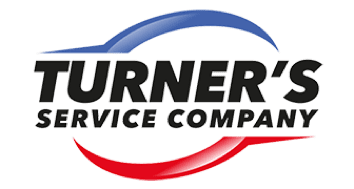Carbon monoxide detection: Understanding the importance of detecting and preventing carbon monoxide leaks in your HVAC system
Carbon monoxide (CO) is a silent killer. It’s a colorless, odorless, and tasteless gas that is highly toxic and can be deadly when inhaled. It’s produced by incomplete combustion of carbon-based fuels, such as gas, oil, and wood, and can leak into your home through faulty HVAC systems. That’s why it’s crucial to understand the importance of detecting and preventing carbon monoxide leaks in your HVAC system, and why it’s best to use a professional rather than attempting to do it yourself.
Carbon monoxide poisoning is a serious health risk that can have severe consequences, including death. According to the Centers for Disease Control and Prevention (CDC), carbon monoxide poisoning is responsible for an estimated 50,000 emergency department visits and 430 deaths annually in the United States. Common symptoms of carbon monoxide poisoning include headaches, dizziness, nausea, vomiting, and confusion. In severe cases, it can lead to loss of consciousness and death.
One of the main sources of carbon monoxide leaks in homes is from faulty HVAC systems. HVAC systems, which include furnaces, boilers, water heaters, and other combustion appliances, can produce carbon monoxide when they are not properly maintained or if there are cracks or leaks in the system. Carbon monoxide can then seep into your home and accumulate to dangerous levels if not detected and addressed promptly.
This is why it’s crucial to have a carbon monoxide detector in your home, specifically near your HVAC system. A carbon monoxide detector is designed to monitor the air for the presence of carbon monoxide and alert you if levels become dangerous. However, it’s not enough to simply install a carbon monoxide detector and forget about it. Regular maintenance and inspection of your HVAC system by a qualified professional is essential in preventing carbon monoxide leaks.
Hiring a professional HVAC technician to inspect your HVAC system is crucial for several reasons. First, HVAC systems are complex and require specialized knowledge and equipment to properly inspect and detect potential leaks. A trained professional will be able to identify any cracks, leaks, or other issues in your HVAC system that could be potential sources of carbon monoxide leaks. They will also be able to assess the overall condition of your HVAC system and ensure that it is functioning efficiently and safely. Main Website here
Second, attempting to inspect your HVAC system on your own can be dangerous. HVAC systems typically use natural gas, oil, or other flammable fuels, and tampering with these systems without proper knowledge and training can result in gas leaks, fires, and other hazards. Carbon monoxide leaks can also occur during the inspection process if not done correctly, leading to exposure to this toxic gas.
Third, hiring a professional HVAC technician can help you comply with local building codes and regulations. Many jurisdictions require regular inspections of HVAC systems to ensure they are operating safely and efficiently. Failure to comply with these regulations can result in fines and penalties.
In addition to regular HVAC system inspections, there are other steps you can take to prevent carbon monoxide leaks in your HVAC system. Make sure your HVAC system is properly installed by a qualified professional and that it meets local building codes and regulations. Have your HVAC system maintained regularly by a professional, including cleaning and inspecting vents, flues, and chimneys. Avoid using portable generators, charcoal grills, or other fuel-burning devices indoors, as they can produce carbon monoxide. Make sure your home is properly ventilated, and never block vents or flues. Looking for more info on zoning systems
In conclusion, detecting and preventing carbon monoxide leaks in your HVAC system is of utmost importance to protect your family’s health and safety. It’s essential to use a professional HVAC technician for regular inspections and maintenance of your HVAC system, as they have the expertise, knowledge, and equipment to properly detect and address any potential carbon monoxide leaks. Attempting to inspect or repair your HVAC system on your own can be dangerous and may result in unintended consequences. Remember, carbon monoxide is a silent and deadly gas, and the stakes are too high to take any risks. Invest in the safety of your home and loved ones by prioritizing professional HVAC maintenance and inspections, and ensure that your home is equipped with properly functioning carbon monoxide detectors. Your family’s health and well-being depend on it.




